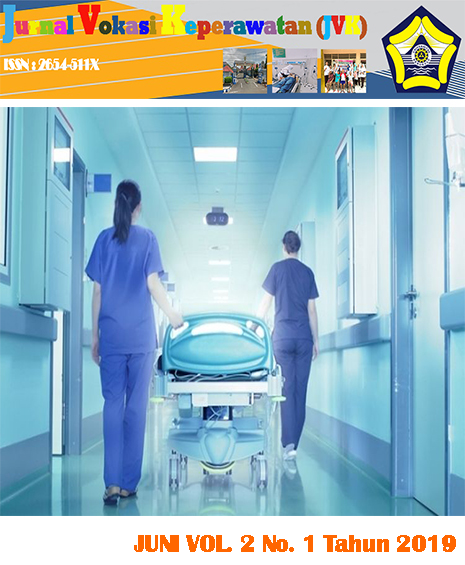Main Article Content
Abstract
Disaster preparedness is a series of activities carried out to anticipate disasters through organizing and through appropriate and efficient steps. Bengkulu Province is one of the areas prone to earthquake disasters. One of them is the lempuing village located in the long coastal area of Bengkulu City, which is adjacent to a residential area of around 2 meters which has a very strong impact when the earthquake occurs. The purpose of this study was to describe community preparedness in the region of the earthquake against earthquake disasters. This type of research is descriptive research, the sample in this study was the head of the family taken by accidental sampling. The results of the study showed that the majority of respondents 66% with categories not ready for disaster. Researchers suggest that disaster preparedness needs to be improved in an effort to increase community preparedness in the face of disasters.
Keywords
Article Details
References
- Asnayanti, A., Kumaat, L., & Wowiling, F. (2013). Hubungan Mekanisme Koping Dengan Kejadian Stres Pasca Bencana Alam Pada Masyarakat Kelurahan Tubo Kota Ternate. Jurnal Keperawatan, 1(1).
- Baker, L. R & Cormier, L. A. (2013). Disaster preparedness and families of children with special needs: A geographic comparison. Journal of Community Health Vol.38 (1):106-112.
- Chan, E. Y., Kim, J. H., Lin, C., Cheung, E. Y., & Lee, P. P. (2014). Is previous disaster experience a good predictor for disaster preparedness in extreme poverty households in remote muslim minority based community in China?. Journal of immigrant and minority health, 16(3), 466-472.
- Dantzler, D. (2013). Basic household disaster preparedness decisional Influences among male federal employees in the national Capital region. Capella University.
- Fathiyah, K. N. (2012). Berbagai Faktor Penentu Penyesuaian Psikologis Positif Penyintas Bencana Pasca Bencana. Paradigma, 7(14).
- Groves, S. (2013). Knowledge, involvement and emergency preparedness.
- Kim, Y. C., & Kang, J. (2010). Communication, neighbourhood belonging and household hurricane preparedness. Disasters, 34(2), 470-488.
- Notoatmodjo, S. (2010). Ilmu perilaku kesehatan.
- Susanto, N., & Putranto, T. T. (2016). Analisis Level Kesiapan Warga Menghadapi Potensi Bencana Longsor Kota Semarang. Teknik, p-ISSN, 0852-1697.
- Thomas, T. N., Leander-Griffith, M., Harp, V., & Cioffi, J. P. (2015). Influences of preparedness knowledge and beliefs on household disaster preparedness. Morbidity and Mortality Weekly Report, 64(35), 965-971.
- Wawan, A., & Dewi, M. (2010). Teori dan pengukuran pengetahuan, sikap dan perilaku manusia. Yogyakarta: Nuha Medika, 11-18.
References
Asnayanti, A., Kumaat, L., & Wowiling, F. (2013). Hubungan Mekanisme Koping Dengan Kejadian Stres Pasca Bencana Alam Pada Masyarakat Kelurahan Tubo Kota Ternate. Jurnal Keperawatan, 1(1).
Baker, L. R & Cormier, L. A. (2013). Disaster preparedness and families of children with special needs: A geographic comparison. Journal of Community Health Vol.38 (1):106-112.
Chan, E. Y., Kim, J. H., Lin, C., Cheung, E. Y., & Lee, P. P. (2014). Is previous disaster experience a good predictor for disaster preparedness in extreme poverty households in remote muslim minority based community in China?. Journal of immigrant and minority health, 16(3), 466-472.
Dantzler, D. (2013). Basic household disaster preparedness decisional Influences among male federal employees in the national Capital region. Capella University.
Fathiyah, K. N. (2012). Berbagai Faktor Penentu Penyesuaian Psikologis Positif Penyintas Bencana Pasca Bencana. Paradigma, 7(14).
Groves, S. (2013). Knowledge, involvement and emergency preparedness.
Kim, Y. C., & Kang, J. (2010). Communication, neighbourhood belonging and household hurricane preparedness. Disasters, 34(2), 470-488.
Notoatmodjo, S. (2010). Ilmu perilaku kesehatan.
Susanto, N., & Putranto, T. T. (2016). Analisis Level Kesiapan Warga Menghadapi Potensi Bencana Longsor Kota Semarang. Teknik, p-ISSN, 0852-1697.
Thomas, T. N., Leander-Griffith, M., Harp, V., & Cioffi, J. P. (2015). Influences of preparedness knowledge and beliefs on household disaster preparedness. Morbidity and Mortality Weekly Report, 64(35), 965-971.
Wawan, A., & Dewi, M. (2010). Teori dan pengukuran pengetahuan, sikap dan perilaku manusia. Yogyakarta: Nuha Medika, 11-18.
